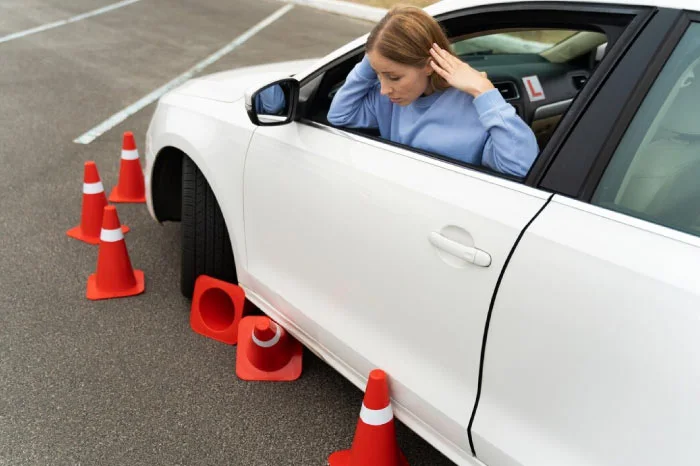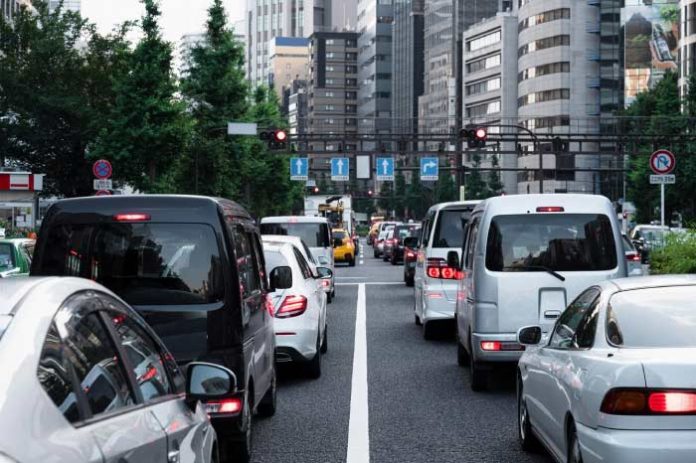Atlanta is home to over 498,000 people, commuting daily to go to work, school, or just explore the city. Moreover, several major highways run through the city, such as I-85 and I-75, which increases traffic volume.
Despite the enormous amount of people on the road, the infrastructure is not very flexible. Atlanta has some of the worst bottlenecks, such as Spaghetti Junction, causing congestion. All of this makes traffic in Atlanta a nightmare! The 2022 Global Traffic Scorecard ranked Atlanta traffic as the 10th worst in the USA.
Commuters lose an average of 74 hours per year on the road. In addition to traffic jams and lost time, there is a high number of road accidents. In 2023, around 28,278 car accidents were reported to the Atlanta PD.
That’s where traffic laws in Atlanta come into play to ensure safe driving. When a driver ignores traffic laws and causes an accident, they can be held liable for their negligence. For example, overspeeding, using a mobile phone, driving under the influence, or aggressive driving.
This guide dives into Atlanta’s traffic laws, helping you understand the most common ones and why they matter. We’ll explain how following these laws keeps you safe and what happens if someone breaks them, causing an accident.
Also Read: Best Lawyer Movies
Driving Rules In Atlanta: Roadmap To Safety
Traffic laws are the foundation of safe driving. Here are the most important ones to remember in Atlanta Georgia.
- Speed Limits: Exceeding the speed limit is a common traffic violation and can cause accidents. Always stick to the posted speed limits:
- Residential roads = 25 mph
- Urban highway = 65 mph
- Rural highway = 70 mph
- Right-of-Way: When there are no traffic lights at an intersection, the left-hand motorist must yield to the driver on the right side.
- Following Distance: It is important to keep a safe gap between your vehicle and the one in front of you, particularly during congestion. Failure to do so can result in rear-end collisions.
- Slowpoke Rule: Avoid driving slowly in the left lane, impeding the flow of traffic, unless you are actively passing another vehicle.
- Move Over Law: If you see an emergency vehicle with flashing lights, you should move over one lane. If moving over is not possible, slow down 10 mph below the speed limit and make way for the vehicle.
- Headlights in Rain: Atlanta is big on storms and heavy rain. Always keep your headlights on while driving in heavy rain.
- Hands-Free Driving: You can not hold an electronic device (for example, a smartphone) while driving. Hands-free and Bluetooth devices are allowed though.
- DUI/DWI: Driving under the influence is a serious offense that carries a $300 fine and a maximum 12-month jail sentence for first-time offenders. The current acceptable Blood Alcohol Content (BAC) is 0.08% for drivers over 21 years of age.
- Four-Way Stops: At a four-way intersection with no traffic lights, all vehicles should stop and take turns to go ahead in the order they arrived.
Atlanta Traffic Laws: How They Affect Your Personal Injury Claims
If you have been involved in a car accident, an Atlanta personal injury lawyer can help you determine if the other party broke traffic laws, gather evidence, strengthen your case, and establish negligence. Here is what you should know about Atlanta’s traffic laws and their role in personal injury lawsuits:
Negligence and Traffic Violations
Violating these laws can be used as evidence of negligence in a personal injury case arising from an accident. Running a red light, speeding, or failing to yield can establish fault in a claim.
- Speeding: Surpassing the posted speed limit shows a disregard for safety and traffic regulations. If overspeeding results in an accident, it can be used to establish fault and negligence on the driver’s part.
- Disregarding Traffic Signals: Running a red light or stop sign shows a lack of due care and can be used as strong evidence of negligence.
- Distracted Driving: If a driver is using any electronic device or is engaged in any activity that shifts the focus away from the road, it can become a ground for a negligence claim.
- Improper Lane change: Failure to use a turn signal or making unsafe lane changes can also factor in establishing negligence.
Comparative Negligence

The state of Georgia follows the modified comparative negligence system. In this system, parties involved in a car accident can be assigned a percentage of fault based on the available evidence.
This percentage of fault can be used to determine who is the most liable. However, you can still pursue compensation as long as you are not assigned more than 49% of the fault.
If you are assigned 50% or more fault, then you may be barred from recovering damages in the event of an accident. Similarly, if your damages are worth $100,000, and your percentage of fault is deemed at 20%, you will only be able to recover $80,000.
Several factors can influence the percentage of faults assigned to each party, such as traffic law violations, actions of drivers involved, physical evidence, witness statements, and initial police reports. Since determining fault and liability can result in a loss of compensation, it’s best to consult and have a lawyer by your side to help you build your case adequately.
Read More: A Day in the Life of a Lawyer
Duty of Care
Atlanta’s traffic laws imply that all drivers have a duty of care to each other and pedestrians. This duty of care refers to the act of driving responsibly, obeying traffic laws, being aware of pedestrians and cyclists, and maintaining a safe distance, among other things.
In a personal injury case, the first aspect in establishing fault is determining who breached their duty of care.
If you pursue a personal injury claim, you must present evidence to show that the driver at fault breached their duty of care, which resulted in injuries and losses that you sustained.
Proving that the duty of care was breached is among the first steps in establishing negligence and liability in a personal injury case.
Traffic Violations As Evidence

When evidence is gathered in a personal injury case, the witness statements, police reports, or traffic camera footage are analyzed to establish what traffic laws were violated. This contributes to proving fault and liability.
Although car accidents can occur even when traffic laws are respected, such as in the case of vehicle defects, they are usually the first element analyzed in claims.
Statute of Limitations
When you pursue a personal injury claim against another party in Georgia, you must do so within two years from the accident date. This is known as the statute of limitations. This limitation exists to entice parties to pursue a claim as soon as possible.
This is because the more it takes for a claim to be pursued, the harder it will be to gather evidence. If you have witnesses, for example, who can help you establish what traffic laws were broken during your car accident claim, pursuing a late claim can result in inaccuracies as witnesses may not recall the events accurately.
Working With an Attorney
Traffic laws in Atlanta can be complex and used to defend against allegations or establish negligence. Consult with a car accident attorney to explore your legal options and understand how these laws affect your claim.
Conclusion
Driving through Atlanta’s busy roads and highways is no easy feat, given the heavy traffic. However, understanding and following the traffic laws put you in the driver’s seat (pun intended) towards safety and convenience.
Besides safe driving, these traffic laws are also crucial in the event of a personal injury claim. They help in establishing negligence through traffic rule violations, assigning fault, and seeking compensation after an accident.
So, next time you are on the road, remember to heed the lessons you learned here. Drive within the speed limits, yield to the right-of-way, and above all, drive responsibly. Ensure a safe and smooth journey for everyone by sticking to Atlanta’s traffic laws.





